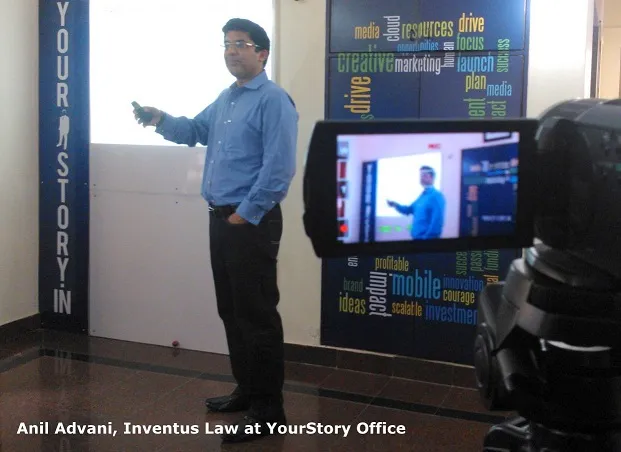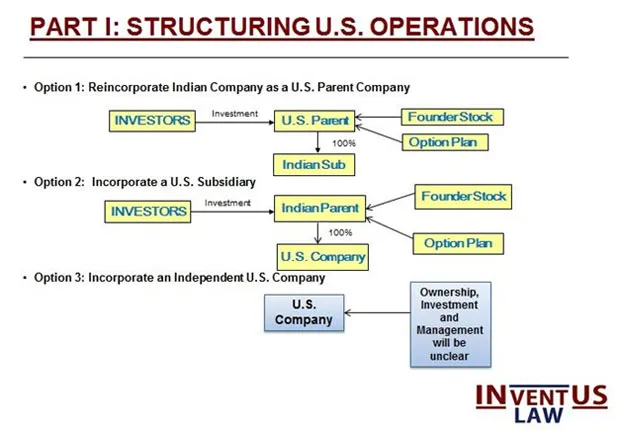Things you wish you’d thought of before registering your company in India
This article is a part of a series called “Silicon Bridge” which puts focus on the India-US startup connect.
Picture two engineering graduates starting up right after college. Their enthusiasm is brimming but they’re hardly thinking about where to register their company. Even registering is an after-thought in many cases. Who starts off a company thinking that in two years we wouldn’t get follow on funding, because we’ve already had investors in India and that the 50-50% equity split is becoming a problem? These are the very things Anil Advani, managing partner at Inventus Law told the audience in the YourStory office who’d gathered for a workshop on how to setup an office in the US.

Before you register
Let’s be very honest. Indian laws are not yet startup friendly. But this shouldn’t deter one from starting up in India and registering here, but just maybe it is prudent to check out other options. Registering in Delaware, US is probably the easiest way to startup. “You can get up and going with just about $350 and within a day,” said Anil. And it has nothing to do with nationalistic pride. The laws belong to a jurisdiction and not a country. So, it’s not the same to register throughout the US, Delaware specifically is friendly.
There are multiple ways in which one can register:

Singapore is another hotbed where people are registering offices because of the ease (read about Singapore’s Startup Walkabout).
The funding game
Apart from setting up, other issues in India kick in when you’re looking to raise funds. If you’re a Delaware C corp company, none of the Silicon Valley investors will have any quibbles. But if you’re an Indian company who has raised an angle round here and then are looking outwards for a follow up round, issues can crop up. “The structuring becomes a bit complicated and investors tend to stay away from such deals,” says Anil.
Anil also shared an instance where entrepreneurs startup with a firm belief that they’ll be in India and their market is also in India. But two years down the line, they realize that they’ll have to look west -- and then the issues pop up. So it’s better to structure the front end of the company in such a way that even if you’re in India, you have registration at friendlier places. “And this doesn’t make you less Indian, it only gives you a better chance of succeeding,” he says.
Don’t be too emotional when starting up
Friends usually startup with an equal stake in the company. It’s never a problem and seems like the perfectly logical step at the beginning but a couple of years later, interests wane sometimes and that may result in some mud slinging. “It’s very important to be clear at the start that who is committed and how much. Equity splitting should be fair and fair is not always equal,” says Anil.
One year after starting up, the tech guy shouldn’t think that he’s doing all the work and 50-50% split doesn’t seem logical anymore. Yes it’s a lot about trust, but too many companies break off due to co-founder disputes. Always better to chart it out from the start. (ask these 5 uncomfortable questions to your co-founder and also decide on things like which co-founder should take the spotlight).
Here is the presentation Anil shared with the audience:
Do subscribe to our newsletter for all the updates on the workshops and other startup news.







